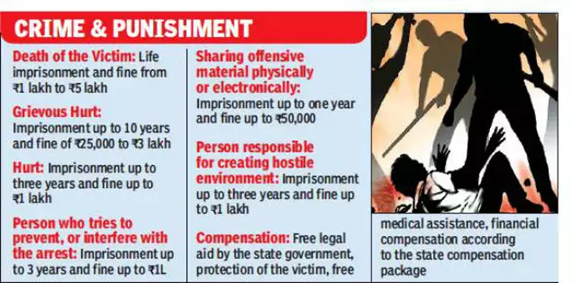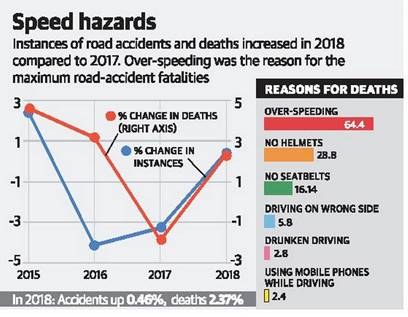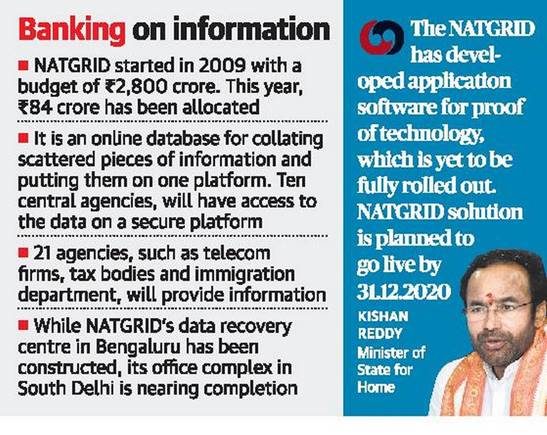



Electoral bonds: CEC objected to 1% vote share norm
In the process of vetting the electoral bonds scheme in December 2017, the Law Ministry repeatedly objected to the Finance Ministry’s stipulation that political parties must have a 1% vote share in the Lok Sabha or State Assembly elections in order to be eligible for the scheme.
- Chief Election Commissioner (CEC) also objected to the vote share requirement as discriminatory. As, all Political Parties were not consulted.
- Economic Affairs Secretary also raised concerns that individual candidates and new political parties would not be able to receive donations under the scheme. He cautioned that the “somewhat discriminatory” provision might be challenged in the courts.
- It asked for imposing 6% vote share requirement (similar to the requirement for recognised State, national parties).
- It also asked for the removal of the vote share requirement entirely and should be aligned with the RPI Act
- Low increase in prices of agricultural commodities.
- The slower increase in rural agricultural wages.
- Recent released draft of Consumer spending report by NSSO showed decline of consumer spending for first time in last 40 years.
- Scholars have recorded sharp declines in chronic poverty as also multi-dimensional poverty between 2005-06 to 2015-16. Indicators like nutrition, child mortality, and years of schooling, cooking fuel, sanitation, drinking water, electricity, housing, and assets determine multi-dimensional poverty.
Measures taken so far to reduce rural poverty:
- National Food security act has given subsidy in tune of Rs. 835 to family of five person. It is available to 75% of population. It has lowered the inflation in economy.
- Public welfare programmes like rural housing, rural toilets, LPG connections under Ujjwala, electricity connections to households under Saubhagya, enrolment for bank account, accident and life insurance, have all happened on a larger scale. It has resulted in decline of multi-dimensional poverty.
- Pro-poor welfare programmes often involve households contributing from their side. It affects demand for goods purchased by the poor.
- Allocation for rural development programmes has gone up considerably from Rs 50,162 crores in 2012-13 to Rs 1.18 lakh crores in 2019-20. Further, Contribution from states have increased manifold.
- 14th Finance Commission’s grants to gram panchayats have been released on an unprecedented scale. The annual releases are over three to four times the previous grants.
- Works under the Mahatma Gandhi National Rural Employment Guarantee Scheme (MGNREGS) have continued to be in demand even though the wage rates fixed every year on the basis of the Consumer Price Index for Agricultural Labour (CPI-AL) have grown modestly on account of the cheap price of food grains.
- Deendayal Antyodaya Yojana-National Rural Livelihood Mission (DAY-NRLM) programme has led to sanctioning of 2, 12,000 crore in loans. NPA has come down from over 7 per cent in 2013-14 to barely 2.2 per cent in 2018-19, clearly establishing that DAY-NRLM SHG women borrow and return on time.
- There is a significant increase in individual beneficiary schemes like farm ponds, dug wells, animal sheds, vermi-composting etc under the MGNREGA, which have all gone into creating durable assets and providing opportunities for higher incomes.
The anti-lynching Bills passed by the Rajasthan and Manipur Assemblies were still being examined and are yet to get the President’s consent.
- Government through audio-visual media has generated public awareness to curb the menace of lynching.
- It has sensitised service providers to take steps to check the propagation of false news and rumours that have potential to incite mob violence and lynching.
- Following a Supreme Court directive, it had issued advisory to states to check incidents of lynching.


More than 1.5 lakh people lost their lives in road crashes in the country in 2018, registering an increase of 2.4% as compared to the year before, when there were 1.47 lakh fatalities.
- The Ministry of Road Transport and Highways has released it.
- Every hour, there is 53 crashes and the loss of 17 lives.
- Road traffic injuries constitute the eighth leading cause of deaths in India in 2018.
- India is the most unsafe country in the world for road users across 199 countries.
- Taminadu, Uttar Pradesh and Madhya Pradesh had highest road fatality.

The ambitious National Intelligence Grid (NATGRID) project will be operational by December 31, 2020.
- NATGRID was exempted from the Right to Information Act, 2005 under sub-section (2) of Section 24.
- Against 119 sanctioned government posts, a total of 53 officers are presently in position.
- Against 123 contractual posts, 21 consultants have been deployed.
- Physical infrastructure is planned to be completed by March 31 next year and “IT Solution to go live by 31.12.2020.
- The NATGRID links intelligence and investigation agencies.
- The 10 user agencies will be linked independently with certain databases, which will be procured from 21 organisations including telecom, tax records, bank, immigration etc. to generate intelligence inputs.
- NATGRID is facing opposition on charges of possible violations of privacy and leakage of confidential personal information.
- Its efficacy in preventing terror has also been questioned given that no state agency or police force has access to its database thus reducing chances of immediate, effective action.
- According to few experts, digital databases such as NATGRID can be misused. Over the last two decades, the very digital tools that terrorists use have also become great weapons to fight the ideologies of violence.
- Intelligence agencies have also opposed amid fears that it would impinge on their territory and possibly result in leaks on the leads on which other agencies are working.
- Natgrid will decline the use of coercive methods in Police interrogation. Investigation will be done in intelligent manner.
- It will drastically decline the cases of imprisonment of innocent.
- Investigation of enforcement agencies will be preventive in nature than reactive. Many frauds of economic nature can be curtailed by studying the developed pattern.
- Natgrid would also help the Intelligence Bureau keep a tab on persons with suspicious backgrounds.
- Well-formulated database will allow curtailing the terror framework in India. It will be effective in countering ecosystem of terrorism.
- The idea is to collate and analyze vital data to get the complete view of a situation. Details that take one to three months can be had within minutes.
- Natgrid will tackle the problem of poor coordination regarding data transfer from one agency to another agency will tackle.
- Due to federal nature of government, the coordination at centre and states level is also lacking and in the case of any emergency, the response mechanism is not effective. Here too Nat Grid will be useful.
How should India respond to the next terrorist attack sponsored by Pakistan?
- The sponsorship of cross-border terrorism is a core tenet of Pakistan’s security strategy.
- Radicalised locals increasingly dominate Kashmiri militancy.
- Pakistan have already shown a willingness to absorb enormous material costs.
- It mostly focusses on punishments.
- India’s military responses in 2016 and 2019 were framed as attempts to impose costs on the Pakistani terrorist groups and their Army backers.
- It can impose sufficiently heavy costs on the enemy such that the enemy is dissuaded from attacking again.
- It serves a domestic political purpose, shoring up popular support for the government.
- It can be used to eliminate specific enemy capabilities, such as weapons manufacturing.
- It allows the punisher to manage the ongoing conflict, and communicate diminishing patience with the adversary.
- It carry the risks of inadvertent escalation, especially if the punishment actions themselves are escalatory, like the Balakot strikes.
- They can create a commitment trap, binding the government to a policy of retaliation, lest it be seen as weak in the next crisis.
- Destruction of specific enemy capabilities requires exquisite intelligence and targeting, and even then, the destroyed capabilities are likely to be reconstituted.
- It requires effective denial operations, to make terrorist attacks more difficult for the enemy.
- It means adherence to security protocols. The attacks on the Pulwama and Pathankot air force base happened due to non –adherence to security protocol.
- Government must focus on addressing the grievances of the local population, which drive radicalisation.
- It requires shaping operations to incentivise the adversary to limit its attacks.
- Counterterrorism must be synchronised with wider foreign policy, using harsh action through the Financial Action Task Force, or productive bilateral talks with China, to isolate Pakistan.
- It requires cultivating resilience, to reduce the political impact of terrorism.
- Policies like Zero-tolerance to terrorism only serve to sharpen public fears and box-in governments to respond aggressively to the next attack.
- It requires a constant process of evaluation and adjustment.
Reference: https://www.thehindu.com/todays-paper/tp-opinion/rebalancing-counterterrorism/article30021730.ece
The Supreme Court said that the armed forces should consider granting permanent commission to women officers under the Short Service Commission (SSC) before March 2019.
- The government has already issued notification for permanent jobs to women officers in 10 branches of the Army. It has granted permanent commission to women officers who joined the forces under the SSC after March 2019.
- Permanent commission will not include those who are already serving under the SSC before March 2019.
- The court asked the Centre to look at the positive side of granting permanent commission to women officers with retrospective effect.
- It asked to expand the ambit of the benefit to those serving under SSC before March 2019.
Blanket restrictions have been placed in Jammu and Kashmir after its special status under Article 370 of the Constitution was revoked on August 5.
- Petitioner argues that, J&K slowly becoming a police state.
- Government had brought “draconian and sweeping” restrictions on all persons in the State without knowing whether they had a criminal history or not.
- Such blanket restrictions violate the right to life and liberty under Article 21.
- Individual liberty cannot be subsumed for social control.
- Even in the Hong Kong protests, which have been going on for over 50 weeks, the government has not imposed such restrictions.
- Restrictions should be temporary and could not go on for over 100 days.
- Right to freedom of speech and expression included freedom of propagation of ideas, including the freedom to circulate one’s ideas.
- Recently, Kerala High Court that had stated that Internet freedom was a fundamental right.

© 2025 iasgyan. All right reserved